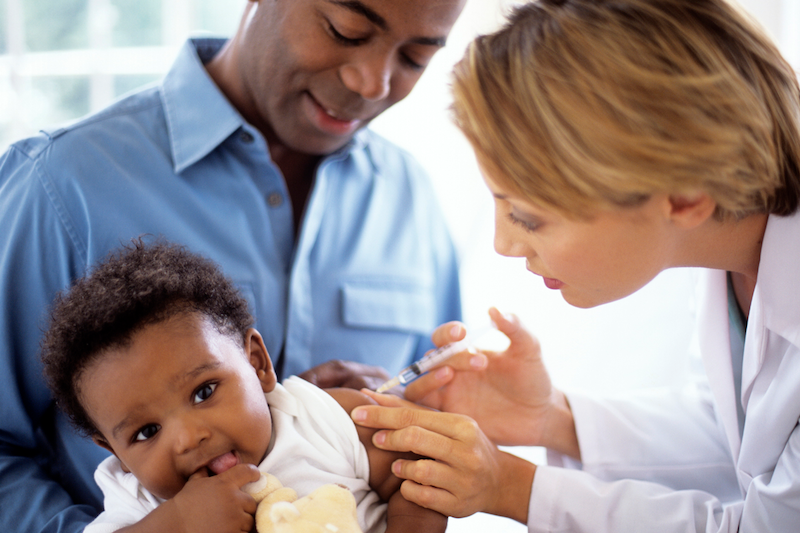RFK Jr. has obviously caused quite a stir with his discussion about vaccines. I think his claims have been widely debunked, but one that was new to me was the argument that newborn babies should not be receiving the hepatitis B vaccine because — unless the mother has it — there is almost no way they could possibly contract it during their infancy.
It looks like in Europe and the U.K., the hep B vaccine is not administered until two to three months unless the child is at high risk for contracting it. What is the reason for vaccinating all newborns for hep B?
—Panic Headline Mom
I have written about vaccine safety before, both on ParentData and in Cribsheet. As you note, the claims Kennedy makes about vaccine risks have been widely debunked, in many different studies.

In the case of the hepatitis B vaccine, the situation is as follows. Hepatitis B is a significant cause of liver cancer and liver failure. It’s much more serious if it is acquired early in life, since at that stage, someone is much more likely to become a carrier. Transmission early in life can be from mom (or dad) or through a child care center.
Because of these risks, vaccination at a young age is important. This is a multi-dose series, which in the U.S. begins at birth and which in many other countries begins at a few months. The reason to give the first vaccine at birth is that if mom is a hepatitis B carrier and does not know it, this will provide protection. If mom is not a known carrier, then there is — as you point out — very limited risk to waiting for a couple of months. In December 2025, the CDC Advisory Committee on Immunization Practices voted to move away from universal vaccination for women who test negative for Hepatitis B before birth. This vaccine is still available to everyone, however.
Having said this, the hepatitis B vaccine is extremely safe and not associated with known risks. If you know you are not a carrier of hepatitis B (and that your partner is not), then waiting until two months for the first vaccine is unlikely to carry significant risks. It also does not carry any benefits.
Community Guidelines


















Log in
Could part of the difference between US and Europe/UK timing for the first hepatitis B vaccine also reflect that fact that in the US it is much more likely than in the other countries that infants have to go into some sort of childcare prior to 2months? It seems reasonable that in countries where parents have paid leave for 2+months, there would be less concern of Hep B exposure during those early weeks, and thus a different view on the vaccination schedule. Though as you say, there is no benefit gained by waiting, which is really the bottom line here.
Wow, that answer sounds like it was given by a drug rep. Women who are under the care of a OBGYN are tested for hepatitis and a whole lot of other stuff during pregnancy. There is no reason why a newborn should get this unless he is pre-exposed. A lot of Kennedys things he says are correct.
There’s literally no reason NOT to give it at birth. It’s been proven safe to give at that time, so why not protect your child as early as you can?
So…you’re ignoring the points about how they can get it from another family member or daycare? Your comment really shows more that you have a specific bias, not her, and that it is leading you to ignore major points and think anything not against hep B at birth is something “written by a drug rep”.